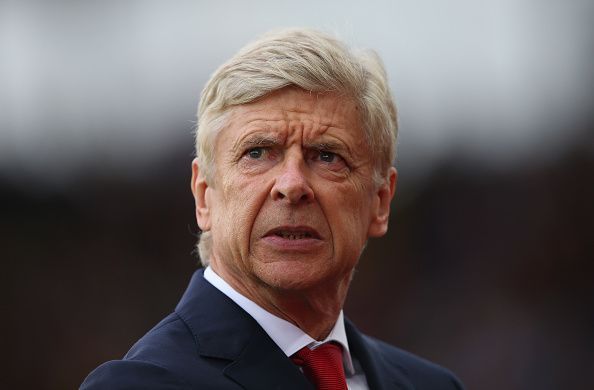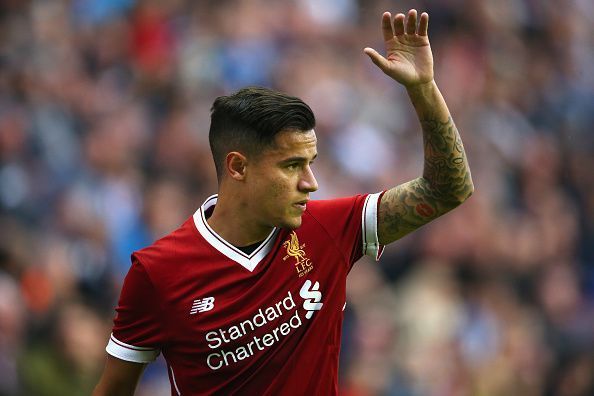
Why the Premier League's new transfer deadline rule is bad news for top clubs

After much consideration and debate, the Premier League has made it official. From 2018 onward, the summer transfer window will now close before the new season gets underway.
To be more specific, the transfer deadline day next year is now on 9 August and no longer 31 August.
What's more, even the time for the deadline has been brought forward from 11 PM to 5 PM. Wouldn't want cub officials and negotiators to work late now, would we?
TV channels and betting companies may be silently cursing the League, fuming even. That's 22 fewer days where they can report potential moves and also make a quick buck on any sort of rumour doing the rounds in the days leading up to the circus that is Deadline Day.
However, they aren't the only ones who will suffer from this new rule. In fact, Premier League clubs may soon find themselves in a quagmire of their own making.
“I think if the window is shut before the season starts everything is sorted out and we can get on with the football. Our club would support that decision." - Swansea City manager Paul Clement
Shareholders' meetings were held in February and June this year where the topic was "discussed at length" and 20 clubs were required to vote on 7 September.
All the League needed was 14 clubs to vote in favour of the decision to get a two-thirds majority and that is exactly what they got. Five clubs voted against while one club abstained from voting.
The new rules for the transfer window
Here are the major changes to the transfer window that will be enforced next year.
1) The summer transfer window in any year will end at 17:00 on the Thursday before the start of the season.
2) This rule applies only to Premier League clubs.
3) The new rule applies only to the acquisition of players. Clubs will still be allowed to sell players to other leagues where the transfer window is still open.
Also read: How transfer deals actually work - 5 transfer myths busted
Why the new rule was discussed
The sole purpose of having the transfer window closed before the season begins was to ensure each club had all their players completely focused on the upcoming season.
A number of transfers usually take place in the last two weeks and managers were fed up with players whose attention was diverted by a potential move.

For example: Southampton fans are yet to see Virgil van Dijk play a single minute of football this season. The Dutch defender had been linked with many top clubs such as Liverpool, Chelsea, Manchester City and even Arsenal this summer but failed to see a move materialise.
Liverpool were accused of tapping him up and they promptly backed off while the £70m price tag turned away most suitors. All this while, Van Dijk was neither allowed to train nor play with the club by Saints manager Mauricio Pellegrino because he was "not in the right frame of mind" to play a part.
Even by deadline day, the club had refused to soften its stance and Van Dijk ended up staying at the club. At least until the winter transfer window in January.
It was the same case with Arsenal's Alexis Sanchez. A move to Manchester City looked on the cards despite Arsene Wenger's insistence that he was going nowhere. The transfer was actually given the green light in the end before it collapsed on deadline day due to the lack of a suitable replacement.

This is exactly what English clubs want to avoid. A number of transfers take place within the league and the last thing managers want is a player whose mind is partly elsewhere, possibly on the phone to his agent everyday, instead of focusing on preparing for the season and being completely on board from Matchday 1.
Also read: Does Wenger's idea of scrapping the January transfer window make sense?
New rule leaves Premier League clubs vulnerable
While the idea sounds good on paper, it is the implementation that could see English clubs in trouble next summer - especially after the transfer window is closed.
Although pre-season allows managers to figure out their best combination, the first two to three games gives him a better idea of what he needs to strengthen the squad. However, that's not the biggest issue here.
One aspect of the new rule stands out like a sore thumb: "The new rule applies only to the acquisition of players."
That means English clubs cannot prevent clubs from other leagues from targeting their players until their respective transfer window slams shut.
The new rule will still allow clubs from, say, La Liga or Bundesliga to try and convince players to leave their respective English club. Letting a player go after the "deadline" will leave the club in a vulnerable position as they will not be able to sign a replacement.

Of course, clubs can still stop them from leaving and point to the player's contract. But most clubs will not want to stand in the way of a player's wishes if a bigger club comes in, especially mid-table clubs who could use the money in the future.
Clubs like Liverpool were in a position to reject what Barcelona offered for Philippe Coutinho because - as Jurgen Klopp said - they are no longer a "selling club". But those lower down the table may have second thoughts.
Coming back to Coutinho, we would see the same problems over and over again from 2018 onward since players will still be allowed to leave in the period between the Premier League transfer deadline and the European transfer deadline.
The Brazilian is yet to play for the Merseyside club and will come back to Anfield with his tail between his legs following the international break. The only way he can now win back the hearts of the undesrtandably enraged Liverpool faithful is by performances on the pitch.
Five clubs voted against the new rule and it is possible that those playing in the Champions League may have been the ones worried about the new rule. That is understandable as their players are at a higher risk of being targeted by European clubs rather than Premier League clubs.
It is these teams who could suffer in August 2018 when other top clubs in Europe circle their squad like sharks to find those ripe for the taking.
This rule only makes sense if the deadline is the same for all leagues in Europe. And that is impossible unless every league kicks off on the same day.